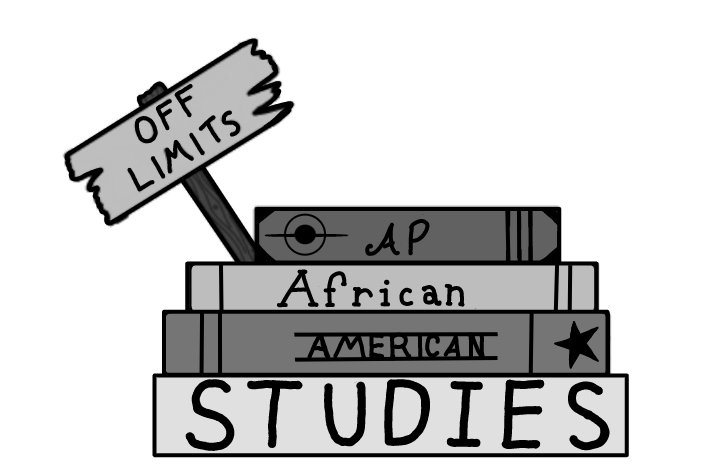The AP class conundrum
Florida’s AP African American Studies decision harms students
April 10, 2023
As students complete registration for next year, they rake through the course guide, scouring for the class that is going to be their perfect fit. For many, this is the drawn-out process of looking through AP classes, and the long list of summer assignments that will await.
You’re looking through the classes, and one catches your eye. You’re intrigued. Interested. You want to learn more. You read through the class descriptions and… you’re hooked. If this has ever happened to you, then you are accustomed to the feeling of being excited about taking a school course, whether it be literature, science, math, or history.
As a high school student, taking new classes about the topics you’re actually curious about and interested in can be exhilarating. This year, word is circulating among students interested in history regarding the possibility of an AP African American studies class being introduced next school year at Shorewood. For many, this would be one of the history classes to take senior year, after taking United States History or its AP counterpart as a junior.
As one of the students currently taking AP US History, I was intrigued when I heard another Advanced Placement class was going to be introduced to the school.
Sadly, the class missed the deadline for Shorewood’s registration period, but not for others. This class, already introduced to other schools’ curricula around the United States, had been met with severe backlash in recent months.
This controversy first arose from the restriction of this course being taught within any Florida high school. Governor of Florida, Ron DeSantis, banned the class from being implemented as a course option, stating that he felt the class was promoting “woke indoctrination.”
Although DeSantis declared this his reason for restricting the course, the more obvious reason was banning the class to attract more conservative voters.
DeSantis, already notorious for passing the “Don’t Say Gay” bill in Florida, has struck a nerve within the sphere of education by also restricting this class when it became available from the School Board. The course, now in a trial stage throughout few high schools, has students and teachers in Florida rising up against the ban and fighting for the class to be offered. Three students have gone the length to take the civil issue to court. Their names haven’t been released due to legal matters.
DeSantis is climbing the ranks in political power and, albeit not announced yet, is also planning on running for president in the upcoming 2024 election. Not afraid to withstand outer intellect in his political decisions, this rising politician is setting the stage of politics aflame as his lens spread across more states.
After the decision to ban the class curriculum, states such as Arkansas have been rumored to be following in his footsteps. Having seen this “follow the mother goose home” pattern before within the Republican party, I have no doubt many states will follow suit.
Although the fight between the Republican and Democratic parties has increased significantly over the past decade, the fight led by the Republican party surrounding Black Lives Matter, police brutality, and recently LGBTQ+ rights has instituted a sort of culture war, with Republicans being caught holding the match to the burning flame they are making out of it.
Before being released to all schools, AP classes go through a rigorous trial stage, testing the course and making alterations where they see fit. In Florida, students are now permitted to take the class, but are facing severe educational disadvantages due to changes made on the course.
Although the class still offers the preliminary teaching of early African American history, the alternative course glazes over the modern lens surrounding the subject of prominent social issues that have come to boil in recent decades. This includes teachings about the Black Lives Matter movement, race theory, and modern advancements in African American culture.
Many people, including me, have been astounded by the recent actions of DeSantis and his sycophants, some even pinning it as the start of the “Don’t Say Black” movement, raising quite obvious questions in my opinion, about DeSantis’s ideas on racial equality.
These recent actions have drastically changed the way I interpret the power of politics within the United States. Obviously, the United States’ status in political and social affairs definitely isn’t one shiny list of perfection. Actually, it is anything but that. You should know that if you have taken any sort of history class.
But the fact that the state governor holds the power to restrict access to a cultural history class, and restrict educational opportunities, is beyond a scope I could have ever imagined.
When I was in middle school, a period of time that feels eons away at this point, my history teacher told me that learning about history is one of the most important lessons someone can have. If you learn about history, it is harder to repeat it. This saying, which in its true form is very cheesy, is also very true. If the upcoming generations don’t learn about the victories and faults people made in the past, how will they learn not to repeat them again?



